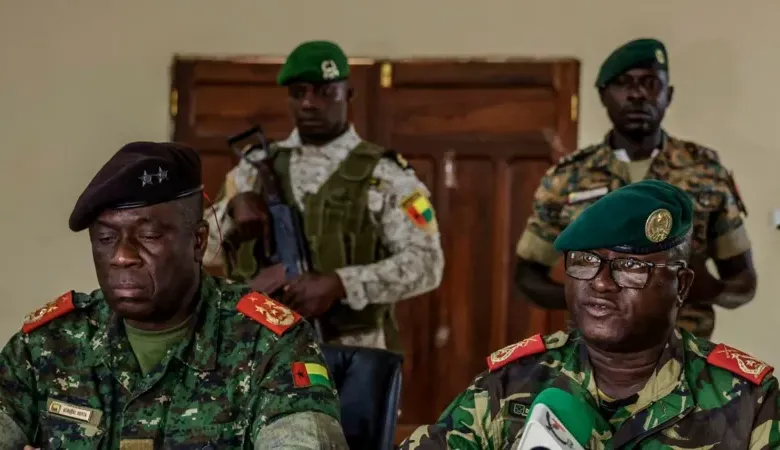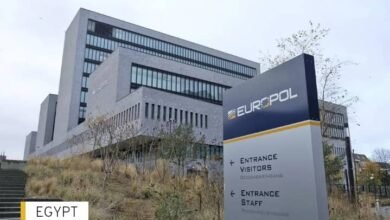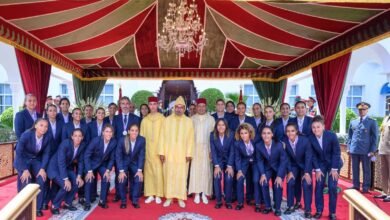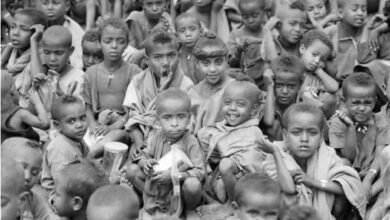BREAKING REPORT — NEW AFRICA MAGAZINE Guinea-Bissau Plunges Into Uncertainty as Soldiers Announce Takeover, President Reportedly Arrested

Guinea-Bissau has been thrust into yet another chapter of political turmoil after a group of military officers claimed control of the country on Wednesday, announcing the suspension of the electoral process and the dissolution of civilian authority. The dramatic development followed hours of confusion in the capital, Bissau, where heavy gunfire sent residents fleeing in panic.
Government insiders confirmed that President Umaro Sissoco Embaló had been detained shortly after gunshots erupted around 13:00 GMT. In a brief phone call to France 24, the president himself stated bluntly: “I have been deposed.”
Shortly after, senior military officers appeared on state television, declaring that they had established a new governing body “The High Military Command for the Restoration of Order.” The announcement was delivered by General Denis N’Canha, head of the military household at the presidential palace, who also ordered the closure of national borders and urged citizens to remain calm.
The dramatic seizure of power comes at a tense political moment. Guinea-Bissau was awaiting the results of Sunday’s presidential election, a vote already marred by controversy after the leading opposition figure was disqualified from running. Both Embaló and his closest challenger, Fernando Dias, had preemptively claimed victory even before official results expected Thursday were announced.
Reports indicate that, alongside the president, several key government figures including members of Embaló’s military staff and cabinet ministers have been arrested. The extent of resistance, casualties, or counteraction from loyalist forces remains unclear.
As gunfire echoed earlier across Bissau, AFP journalists described scenes of chaos as hundreds of citizens abandoned vehicles and ran for shelter. By late afternoon, calm had returned, but tension and uncertainty overshadowed the city.
Guinea-Bissau, a nation of just under two million people, has long struggled with political instability. Since gaining independence from Portugal in 1974, it has endured nine coups or attempted coups, earning a fragile reputation in the West African region. The country has also been branded a “narco-state” by the United Nations, serving as a critical transit hub for cocaine smuggling between Latin America and Europe.
President Embaló, who has repeatedly claimed to have survived multiple coup attempts, often accused his critics of deliberately fueling unrest. His opponents, however, argue that he frequently exaggerated threats as a means to tighten his grip on power.
Today’s takeover if sustained marks yet another turning point in a country where democratic transitions have rarely been peaceful, and where the military remains a decisive political actor.
The New Africa Magazine will continue to monitor the unfolding situation, providing updates as more details emerge from Bissau.




